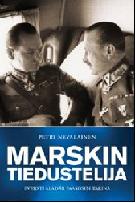The Israeli navy has this morning stopped M/S Estelle on its way to Gaza, captured it and taken the ship and its crew and passengers to the Port of Ashdod in Israel, where we will provide consular assistance to the Finnish citizens. It seems that all people onboard will soon be deported from Israel. The Ministry for Foreign Affairs and the Finnish Transport Safety Agency have followed closely the passage of the ship and have been in contact with the Finnish master of the ship after having received confirmation that the ship, which is under Swedish ownership is still in the Finnish vessel register. Following Israel’s contacts to Finland we have conveyed to the ship the message that Israel will not allow the ship to sail to Gaza and may enforce this with the use of force. Warning of this kind was necessary because there was a significant danger that an eventual use of force could have led to personal injuries.We have studied carefully the legal questions related to this issue and have concluded that Finland, in the capacity of the so called flag state, has neither an obligation nor a possibility or a reason to act in a different way. Sweden, as the home country of the owner of M/S Estelle and of the Ship to Gaza organization is more directly involved in the situation, but has declined to act as enforcer of the Israeli blockade nor to act as an advocate for those breaking it.Finland will also in this situation rely on international law, but the legal issues involved are not, however, unambiguous. The international fact-finding mission that reported to the Human Rights Council on the tragic Flotilla incident causing a loss of many human lives concluded that the Gaza blockade was contrary to international law. The so called Palmer Report of the UN Secretary-General’s Panel of Inquiry came to the conclusion that the maritime blockade was in line with international law. The latter view has been the one many states have felt obliged to live with.Regardless of the differing answers provided by international law, the Gaza blockade is politically unacceptable like the European Union has clearly stated when calling for it to be lifted. The purpose of equipping M/S Estelle has been to provide humanitarian assistance to Gaza as well as to express a strong political opinion in favour of the rights of the Palestinians. Although, this aim is by no means contrary to the views of Finland, it is equally clear that we cannot recommend to anyone to participate in undertakings which may even place their lives in danger.
20.10.2012
 Petri Nevalainen, Marskin tiedustelija. Eversti Aladár Paasosen tarina, Helsinki-kirjat, 255 s., Latvia 2012
Petri Nevalainen, Marskin tiedustelija. Eversti Aladár Paasosen tarina, Helsinki-kirjat, 255 s., Latvia 2012 kielitieteen professorin Heikki Paasosen ja tämän unkarilaisen Mariska-puolison lapsena. Pojan isältään perimät kasvatusperiaatteet olisivat nyky-Suomessa tehneet hänestä lastensuojeluasiakkaan. Kansalaissodassa valkoisten riveissä taistellut 20-vuotias Paasonen kohosi aliluutnantiksi, jatkoi kadettikoulussa ja Ranskassa ensin Saint-Cyrin sotilasakatemiassa ja sitten sotakorkeakoulussa, kurssikaverinaan muuan Charles de Gaulle. On epävarmaa jäikö suomalaisupseeri mitenkään ranskalaisen mieleen, mutta suomalaisen legendaan oli houkuttelevaa myöhemmin liittää läheisyys suuren valtiomieskenraalin kanssa.
kielitieteen professorin Heikki Paasosen ja tämän unkarilaisen Mariska-puolison lapsena. Pojan isältään perimät kasvatusperiaatteet olisivat nyky-Suomessa tehneet hänestä lastensuojeluasiakkaan. Kansalaissodassa valkoisten riveissä taistellut 20-vuotias Paasonen kohosi aliluutnantiksi, jatkoi kadettikoulussa ja Ranskassa ensin Saint-Cyrin sotilasakatemiassa ja sitten sotakorkeakoulussa, kurssikaverinaan muuan Charles de Gaulle. On epävarmaa jäikö suomalaisupseeri mitenkään ranskalaisen mieleen, mutta suomalaisen legendaan oli houkuttelevaa myöhemmin liittää läheisyys suuren valtiomieskenraalin kanssa.